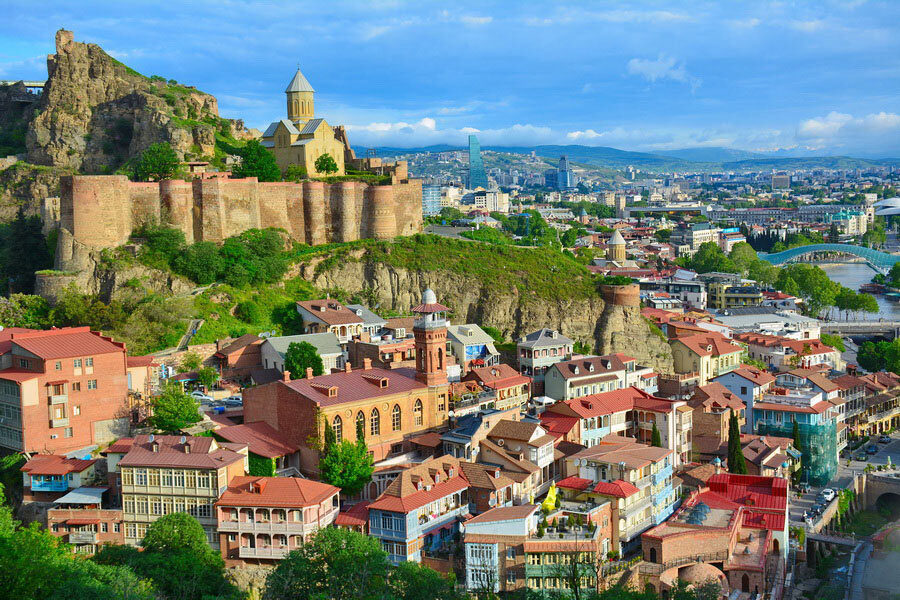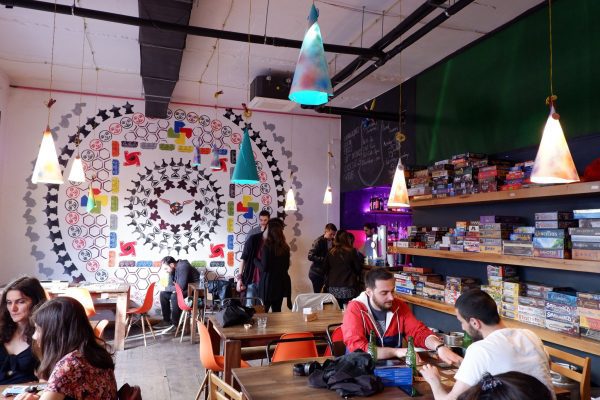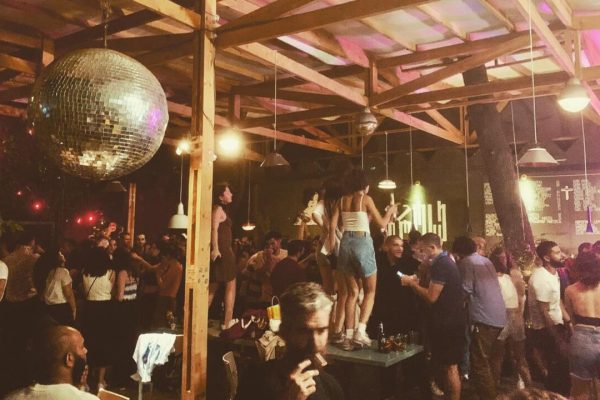We talk about eating a lot in this blog. We have also talked about love. Now it’s time to talk about praying.
The Powerful Orthodox Church
Georgians are obsessed with God, and in particular, Jesus. Our country is predominantly Christian Orthodox and we are very religious. A simple test you can do is stand anywhere in Tbilisi, look around and count the number of churches, you will be amazed at your results. You can also see people constantly stop in front of places of worship to cross themselves, showing their respect to their faith and its institution.
Georgians donate over 10m USD annually to The Church. The Church doesn’t pay taxes and occasionally will be bequeathed free lots of land from parishioners’ estates. Also each of their personal services (such as baptisms or weddings) comes with a pricetag.
The Church wields enormous power over national politics. Recent polls have reported them to have an over 90% favorability rating, making it very hard for any politician to challenge the church on any issue or the privileges it enjoys.
Although Georgia is known for the religious diversity, tolerance towards minorities has mostly become a history. In a neighborhood near Kote Apkhazi street in Tbilisi you can find Orthodox, Catholic, and Armenian Apostolic churches together with a Synagogue and a Mosque. Despite this, at present, religious minorities (around 15% in total) have almost no influence on Government and very low acceptance in the society outside their concentration areas.
The Church and Georgia’s History
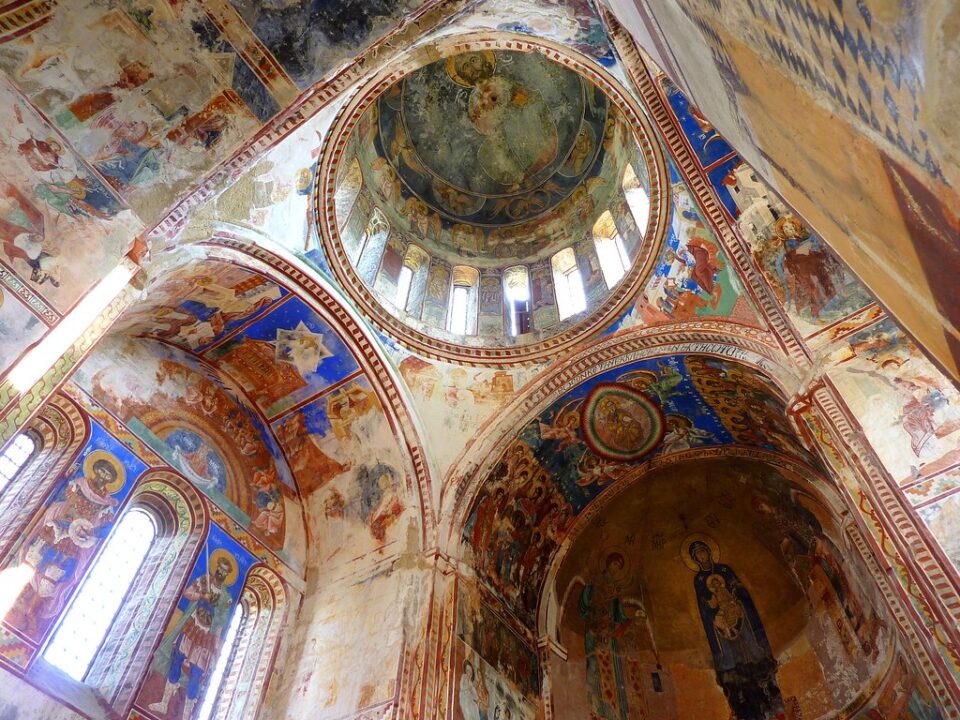
Photo Source: Flickr
Georgia adopted Christianity in the 4th century. Since then this country has been in a constant struggle to maintain its religion, language, and independance. For the majority of Georgians, Christianity is inseparable from their identity.
In Georgia’s latest era, The Church was persecuted by the Soviet Government and began its resurgence in the 1990s after its fall. This was a time marked by undeveloped economies, unstable political environments, and several civil wars. These times of hardship enhanced people’s feelings about the importance of The Church as it focussed on the ideals of Georgian society. It engendered a strong association with Georgian society about what distinctly was and wasn’t Georgian during these times of great uncertainty. However, these days you will meet more and more young people who openly disapprove of the Georgian Orthodoxy and its power, although the majority of the population still stays strongly bound to the institution.
Its Priests and Patriarch
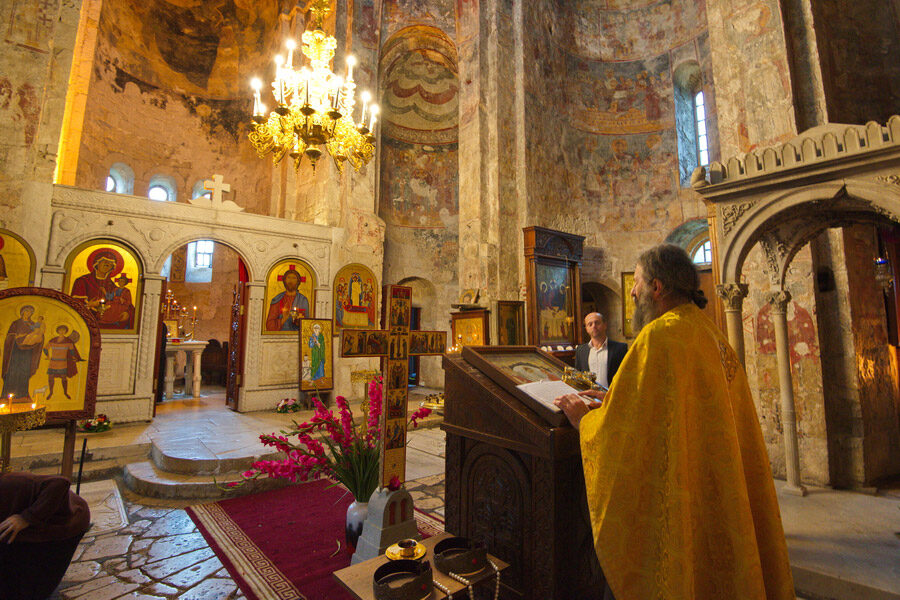
Photo Source: Advantour
Do not be surprised if you are at a Georgian feast (supra) and find a tamada, or “toastmaster”, giving their first toast to God and, with Him, bless the Patriarch Ilia II. Georgians love their Patriarch and constantly drink toasts to his well-being. If you happen to attend such a feast, please try to show respect to the Patriarch and his priests.Look out for long-bearded men in black Assassin’s Creed-like robes (often in black SUV’s) with huge crucifies around their necks. They are priests and some can be quite aggressive (“on a mission from God”, so to speak). Priests enjoy a de facto “holy immunity” in this country and are seldom prosecuted. In fact, none of us at GeorgiaStartsHere remember the last time when one has been fined or jailed.
How to Behave in or Near a Church
As mentioned above, Georgia has a lot of churches and most of them are quite ancient, valuable pieces of cultural history. Therefore much of your sightseeing will include visiting the inevitable church or three. Look to the locals on how to dress and act. Short skirts and shorts are not welcome in Georgian churches, so be sure to have a long bolt of cloth to wrap around your legs. Women must also have their heads covered to enter, so have light scarf to wrap around your head as well; men must remove their hats.
Georgian churches are places of quiet meditation, so try to be silent and or at most speak in a whisper. Don’t run, take pictures, or sit; there are no chairs in Orthodox churches.
The Church and Human Rights
We have mentioned previously that Georgians do not hold many liberal ideas about their LGBT community. The Church is totally against them and are aggressively anti-LGBT, so please do not openly show your sexual preferences — as they don’t seem to like sex in general — whether hetero or homo.
In general, do not engage in debates over God or Religion with Georgians. If you have the urge to debate about God with locals, at least try to understand the scale of their religiousness and adopt a very polite and diplomatic strategy, however this is highly not recommend.
In a nutshell, Georgians love God and usually people fight to protect whatever it is they love. In every country it is considered disrespectful to joke about or to insult anything that their culture loves, so be respectful and know the culture you will encounter.
